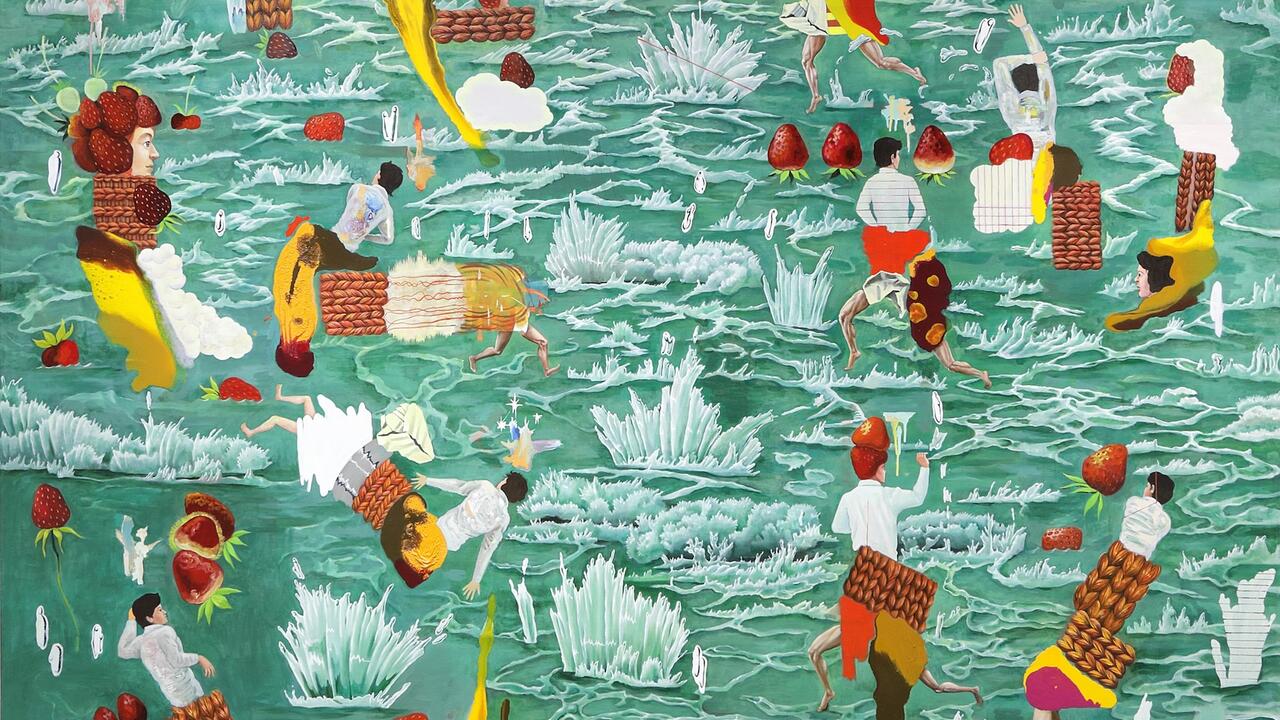Dispatch from Berlin: Out with Punk and in with Prada
In the German capital, recent shake-ups in the museum sector offer reason for excitement and concern
In the German capital, recent shake-ups in the museum sector offer reason for excitement and concern

Bodies pulsing to the rhythm, skin glistening with sweat and illuminated by strobe lights. This is not a scene you’d usually expect to see in a museum. But the new director of Haus der Kulturen der Welt (HKW), Bonaventure Soh Bejeng Ndikung, insisted on creating spaces of emancipation and freedom at the museum’s reopening this summer, with music, performance, ritual and procession dominating from day into night. With Germany’s tanking economy and fractious government still facing threat from the far-right populist party, Alternative für Deutschland, which is polling at 20 percent nationally, Ndikung’s symbolic rebuke to homogeneity and nationalism is much needed.

HKW is not the only Berlin-based museum to have recently shaken up its agenda: Klaus Biesenbach returned from the Museum of Contemporary Art in Los Angeles to head up the renovated Neue Nationalgalerie; Sam Bardaouil and Till Fellrath, Hamburger Bahnhof’s newly appointed co-directors, completely rehung the museum’s collection this summer; and Gropius Bau will soon embark on its own programme of changes, as Jenny Schlenzka takes over from former director Stephanie Rosenthal. This week also sees the opening, after four years in development, of the first German outpost of the Swedish contemporary photography museum Fotografiska. Berlin’s time as a city that can’t compete with the institutional might of North Rhine-Westphalia or Munich is, arguably, over.

Fotografiska, a for-profit museum, is its own ever-expanding empire: founded in Stockholm in 2010, it also boasts spaces in New York, Shanghai and Tallinn. The freshly converted, six-floor building in Berlin was formerly the heart of an alternative art and culture scene, squatted by the Tacheles’ artist initiative from 1990 until their eviction in 2012. Its vast arched windows and towering columns frame stairwells still sprayed with palimpsests of graffiti from a bygone era. But Berlin’s failed rent-cap regulation and housing crunch means developments like this – no matter how they are dressed up – indicate that it’s out with punk and in with Prada.

Fotografiska’s three inaugural exhibitions speak to all things identity politics: Candice Breitz’s ‘Whiteface’, Juliana Huxtable’s ‘USSYPHILIA’ and ‘Nude’ – a show of 30 female-identifying artists who challenge traditional constructs of the body – all aim to ‘[tell] us about modern society’, according to the press release. And, with its launch parties (plural) featuring Berlin stalwart Peaches, as well as MALONDA and Berghain regular Palms Trax (Huxtable also plays there frequently) – the populist drive of this opening is clear: yesterday’s main event was sold out, with maximum image circulation on Instagram.

This is all a far cry from the edifying origins of the Enlightenment museum: taxonomy has been replaced by Technics. But the question is whether such populism is a bad thing. The art world is notorious for its elitism and its alienating, obfuscatory language, which excludes diverse audiences and thus reduces the potential to affect change. Per Nicolas Bourriaud’s Relational Aesthetics (2002), setting up real social interactions and relational situations in the gallery actualizes ‘life possibilities’, with a concurrent shift away from the autonomous art object towards the contingency of people power. In Clare Bishop’s 2018 essay ‘Black Box, White Cube, Gray Zone: Dance Exhibitions and Audience Attention’, she looks at ‘the performative turn of culture more generally, through theories of post-Fordist labour’, citing performance as the regulatory ideal of our time, replacing Michel Foucault’s idea of disciplinary surveillance (Discipline and Punish, 1975). Or, in other words, conformist control: keeping one another in check through the force of people watching.

If Berghain can show art in the club, as it did with the COVID-era exhibition ‘Studio Berlin’, why can’t the museum respond in kind? With music – and, specifically, DJs – playing a role in Berlin’s re-openings, these institutions are strategically riding the wave of nightlife’s popularity and its accompanying audiences, pulling them – and their social-media accounts – into the fold. Perhaps one of the fundamental similarities between the art world and the music industry is their shared obsession with exclusivity as a marker of value: art with its need for aura and music (despite its reproducibility) equating popularity with power. The DJ is yet another untouchable object, roped off and raised upon a pedestal, whose Instagram following enables the circulation of the museum’s cultural capital.

The irony is that all of this is happening as Berlin’s infamous club scene faces threats from a motorway expansion that would close such spaces as ://about blank, Club OST, ELSE, OXI and Renate. Even Berghain terminated its in-house record label and booking agency, Ostgut Ton, in 2022, and was rumoured to be shuttering its doors. Not that this seems to be a problem for Yoram Roth, chairman and majority shareholder of the Fotografiska group. ‘What’s happening in Berlin is, we had a great time drinking out of plastic cups,’ he told The New York Times earlier this week. ‘But we have an audience now that wants a nice glass of wine, a sensible meal and to be part of the cultural landscape.’

As Berlin-based critic Kristian Vistrup Madsen wryly noted in a recent piece for Kunstkritikk, which referenced last year’s documenta fifteen: ‘What is art anyway, if not a colonial, patriarchal, continuous reassertion of the powers that be? Who wants art? What does it even do?’ Berlin’s institutions are under (political) pressure to emphasize their relevance to society and to re-enchant us by showing that art is still important. So, while Germany’s economy could well continue to falter, the neoliberal experience economy is alive and kicking and pumping on your stereo.
Main image: Berlin Beats as part of Kultursommerfestival at Hamburger Bahnhof. Courtesy: © Kulturprojekte Berlin; photograph: Alex Rentsch




















